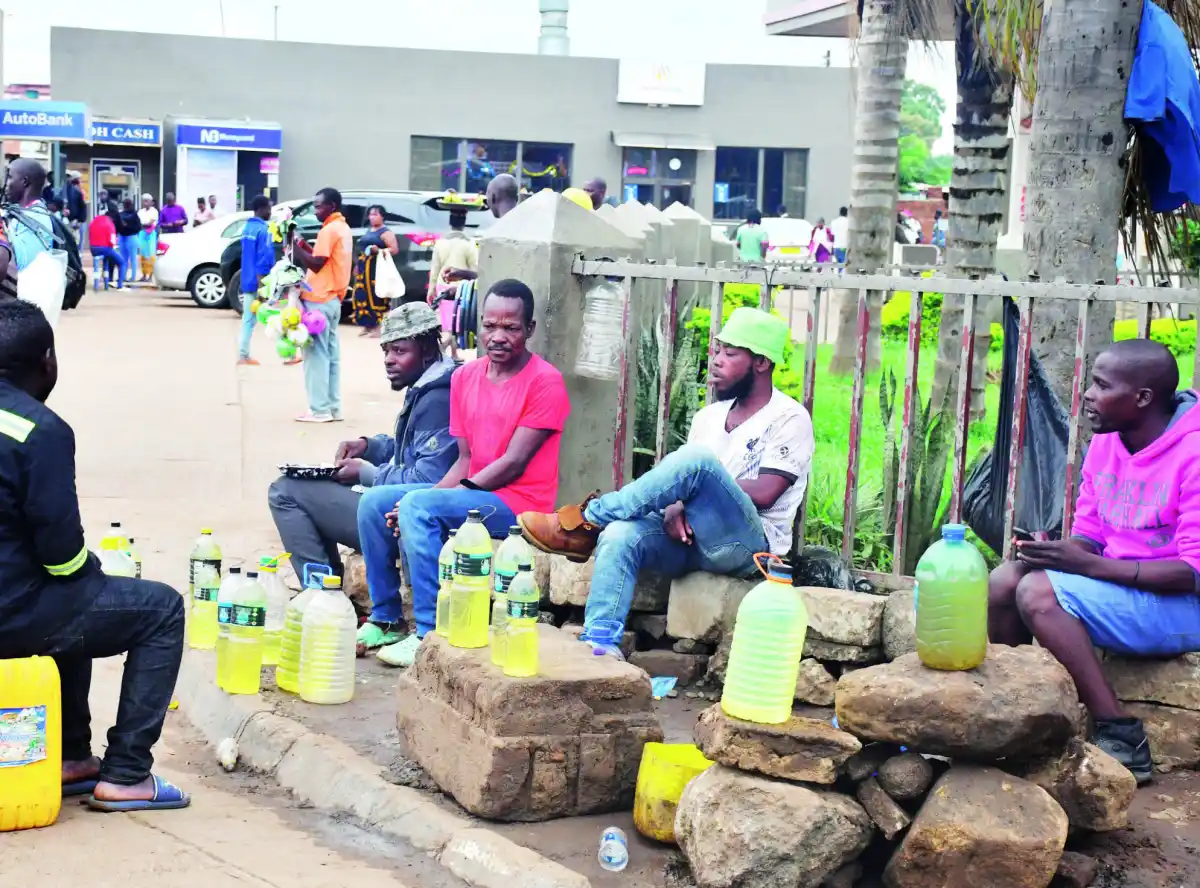
By Mercy Matonga & Chimwemwe Mangazi:
Malawi’s persistent fuel shortages have sparked a boom in illegal fuel trading, with vendors openly selling along major roads and actively pursuing potential customers.
In Lilongwe, black market operators line the M1 Road, selling petrol at K6, 000 per litre, 137 percent above the K2, 530 recommended price, highlighting the severity of the country’s fuel crisis.
The situation is similar in Mzuzu, Blantyre and Zomba, where the vendors are seen sitting next to dry filling stations and along the streets in various locations such as Katoto, Chinamwali, Ndirande and Kameza Roundabout.
Snap checks by The Daily Times on Thursday found that in Mzuzu, the price of the scarce commodity was the highest recorded, at K7, 000 per litre, representing a 176 percent deviation from the recommended price.
However, the price had dropped from K10, 000 when the situation was particularly dire recently.
The situation has left consumers destitute, as they face a deteriorating purchasing power.
In an interview, Miriam Chalunda, a resident of Machinjiri, lamented that they are forced to borrow money to manage purchasing enough petrol at the unregulated price.
In a separate interview, Executive Director of the Consumer Association of Malawi, John Kapito, suggested that the illegal trade may have powerful backers, complicating enforcement efforts.
“When you see fuel on the black market, it is not just the person selling it. There is someone senior behind that business—it might even be the police themselves. So sometimes, someone might be tempted to act but could end up putting themselves in danger,” Kapito said.
He added that discouraging consumers from the black market remains challenging while fuel continues to be scarce through official channels.
Malawi Energy Regulatory Authority (Mera) Chief Executive Officer Henry Kachaje acknowledged the situation and added that the regulator has issued multiple public warnings about unlicensed fuel sales and price violations.
“The responsibility to enforce applicable laws is the mandate of legally instituted government bodies such as the Malawi Police Service. Mera has engaged and written to MPS to help enforce compliance with the applicable energy laws,” Kachaje said.
National Police spokesperson Peter Kalaya maintained that law enforcement is actively addressing the issue.
“We have officers moving around different areas and arresting anyone found selling fuel illegally,” Kalaya said.
The fuel crisis, ongoing since last year, has forced many Malawians to resort to black market purchases.








1 Comments
Useful topic